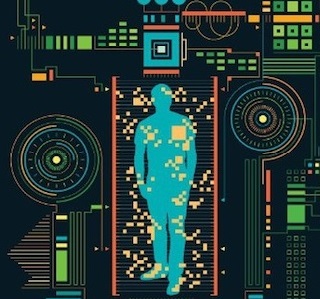HAN SELF-RIGHTEOUS RAGE IN XINJIANG
FOUR of four blogposts on authoritarian China’s delusional fixation on predictive policing
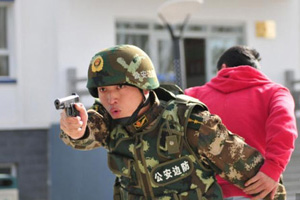
In Western countries racism is debated everywhere, at all times, is vigorously contested, so much so that even in the middle of a pandemic entrenched racism and its legacies is the top topic. There is no such debate in China.
When educated Chinese are asked to reflect about racism, they sometimes say: I like black American culture, but I don’t like blacks. That’s as far as they get. The possibility that their perception of Uighurs and Tibetans might be suffused with racist stereotypes never occurs to them, there is no debate, only silence. Han chauvinist racism as a driver of official policy and popular attitudes is not only off the agenda, it is unimaginable.
As a direct result these unconscious prejudices are embedded in the classifications of predictive policing that get you locked up. Once you are incarcerated, the same racism sets the agenda of the “reform through education” program you must learn to repeat on demand. The recent revelation that Uighur women are routinely sterilised against their will, and required to accept insertion of permanent contraception devices, is the clearest evidence of a violently racist campaign to suppress Uighur population. At the same time a pro-natalist policy for the Han is failing to boost Han numbers -well over a billion people- as fast as the party-state now wants. This is eugenics, the active elimination of an “inferior” race, while promoting a higher birth rate among the “master” race. At this point it is hard to distinguish a forcible assimilation campaign from cultural genocide.

Inside the camps, surrounded by razor wire and armed guards, the curriculum is solely accelerated, mandatory assimilation. For there to be any hope of eventual release, and a return to family life, each person must not only learn to parrot party slogans, but to embrace identification with the Han Chinese race-nation, zhonghua minzu, as one’s primary loyalty and identity.
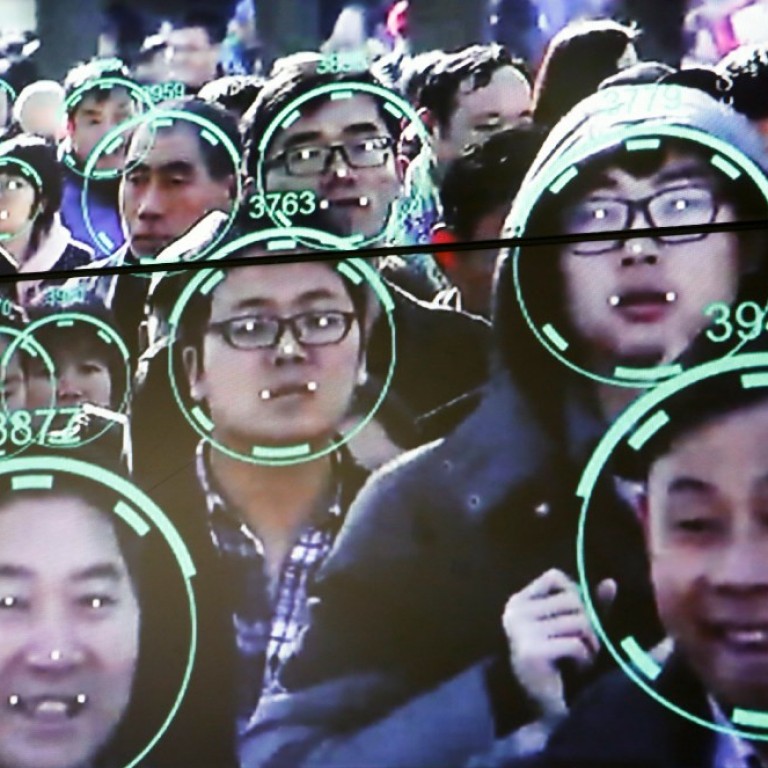
The foundational assumption behind this pedagogy is that six decades of trying to persuade Uighurs to adopt Han Chinese characteristics failed, so now it is time to speed up the inevitable and push, where pull failed. Since Han China is now so strong and successful in an all-round way, the transfer of loyalty from imam to party-state, from Uighur ethnicity to zhonghua minzu is both a historic inevitability and is for their own good, even if they obstinately refuse to see this right now. So, compulsion is necessary. The racism is invisible.
The official rhetoric of this elaborate system of surveilling, recording, classifying and detaining huge numbers of citizens for long periods is that it is a re-education. Is it? Will it achieve the goal of making all Uighurs identify as Chinese, as members of the one Zhonghua Minzu race-nation? Will endless repetition of official slogans and CCP mass campaign phrases somehow shift the minds of Uighurs, so their primary loyalty is to the party-state, ahead of their identification with the Uighur people and Islam? That is the stated intention.
Criminologists worldwide remind us that carceral systems usually talk of rehabilitating prisoners, but in practice this always comes second to punishment. The Uighurs are being punished, for being Uighur. Mass punishment, including forced labour manufacturing export goods, mass sterilisations, rape, chopping long hair for overseas sale of hair extensions, as well as the torments above, can only generate bitterness.
Official China has told the Han masses for decades that the Uighurs, in their officially designated “Xinjiang Uighur Autonomous Region” have enjoyed decades of privileged treatment, including the right to have more children than Han were allowed. The official message is that despite official benevolence, the Uighurs remained ungrateful and then turned terrorist. There are many slick official videos stridently branding the Uighurs as terrorists.[1] Official China is now the captive of its own endless hate speech, having stirred popular passions to demand punishment of an entire nationality.

This cannot end well. Mass punishment, with no end in sight individually or collectively, is cultural genocide. That is the direction this complex algorithm driven system is heading. Genocide is a word coined in the 1940s, adopted by the UN, but weakened by the victors of World War II to exclude cultural genocide, which was the original thrust of the definition proposed by jurist Raphael Lemkin, inventor of the concept. So worried were the major powers that they could find themselves accused of genocide, the legal meaning narrowed to require proof of state intention to eradicate an ethnicity. Philippe Sands, author of an in-depth history of the concept, and its legal variant, “crimes against humanity”, says there can be no doubt China’s actions in Xinjiang are crimes against humanity.
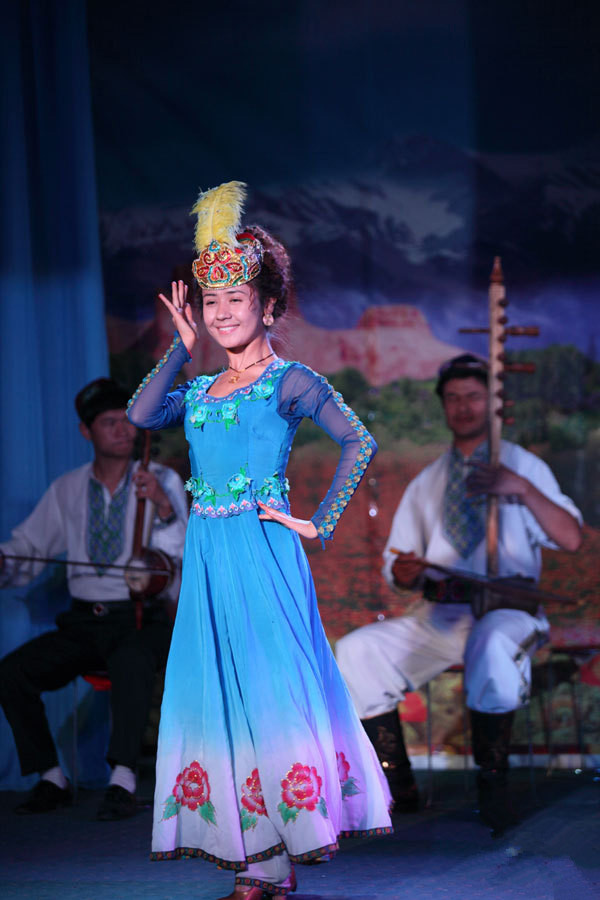
AUTHORITARIAN PERSONALITIES RULE
Detaining 10 to 15 per cent of an entire nationality, for months now becoming years, is logistically enormously expensive and enormously labour intensive, since the ostensible purpose is not only punishment but to change minds. China has been willing to make that investment. Staffing the concentration camps, recruiting staff, both Han and Uighur, to implement coercive assimilation is a huge undertaking, as is evident in the job advertising monitored by Adrian Zenz and others.
Nonauthoritarian personalities need not apply. Effective dehumanisation of Uighurs en masse requires concentration camp staff who have first dehumanised themselves to the point of indifference to the suffering they cause.
This is one of the most striking aspects of the Chinese system, not often discussed: the prevalence, at all levels of the party-state, of the authoritarian personality. A system that selects for authoritarianism results in institutionalised authoritarianism, top to bottom. The ability to see the beard or headscarf as irredeemably Other and a danger to civilisation with Chinese characteristics, is an essential, self-perpetuating prerequisite for making the system work.
Authoritarian personalities recruit fellow authoritarians to their ranks of party members, cadres and local government officials, as well as the staff running the concentration camps. China has over many years created a system that selects for authoritarians at all levels, which reproduces itself in its own image.
Authoritarians relish exercising authority over those ranked below, but also slot comfortably into a hierarchy which issues commands they willingly obey. Subservience to superiors and dehumanised punishment of inferiors are the traits of the authoritarian.
The Chinese Communist Party is about to celebrate its centenary. From the outset it ruthlessly purged those whose ideas deviated from those of the leaders, a long tradition frequently invoked by current leaders.

FORMALISM
What does vex central leaders is cadres who elaborately display their conformity with directives but do little in practice to implement them, often because central commands don’t fit local circumstances. In CCP jargon, this is the sin of “formalism”, a term with Stalinist roots, and it has become such a serious problem of an authoritarian system that the CCP tries, again and again, to command it to cease. The problem is perfunctory performative declamations of obedience to central leaders. The solution is to issue further commands, which inevitably generate further performative declamations of compliance.
In April 2020, amid the virus pandemic, a new diktat was issued: ““Notice on Continuously Solving the Problem of Formalism that Troubles Grassroots Officials and Providing a Strong Work-Style Guarantee for the Comprehensive Establishment of a Moderately Prosperous Society.” It quoted Xi Jinping’s remarks on “firmly putting an end to various kinds of formalism and bureaucratism” and highlighted his directives on “guaranteeing a strong work style for realizing decisive victories in the comprehensive establishment of a moderately prosperous society and the tough battle of poverty alleviation.” Consolidate a strong ideological and political foundation to overcome formalism and bureaucratism and study Xi Jinping Thought on Socialism with Chinese Characteristics for a New Era. Firmly rectify the problem of formalism and treat it as a political problem. Cut unnecessary meetings and paperwork and streamline workflow.”
As with the many similar prior decrees, Continuously Solving the Problem of Formalism will only generate further formalism. Authoritarian systems, especially in a country as big and varied as China, know authoritarianism generates problems, yet the only acceptable solution is further concentration of power, and further demands for obedience.
“The dead hand of such writing can carry on for ten or twenty or thirty pages of single spaced, small font characters. You can imagine how it sounds when you have to listen for an hour or two or three. It is of no matter to a speaker at a meeting, or people on the dais, that perhaps no one in the audience is paying attention. Attendance may be mandatory; attention is not, when a single speaker can declaim for two or three hours. I was surprised to find leaders, who are given great deference in other circumstances, speaking to a crowd that has their heads down, focused on cell phones. But – performative is what counts. Substance will be communicated via other means.”[2]
Social scientists in China remind us that authoritarian personalities not only ignore the needs of those under their control, they are routinely tempted into corruption, secure in the knowledge that they are in no way accountable to those they command. This further incentivises ongoing authoritarianism at all levels.
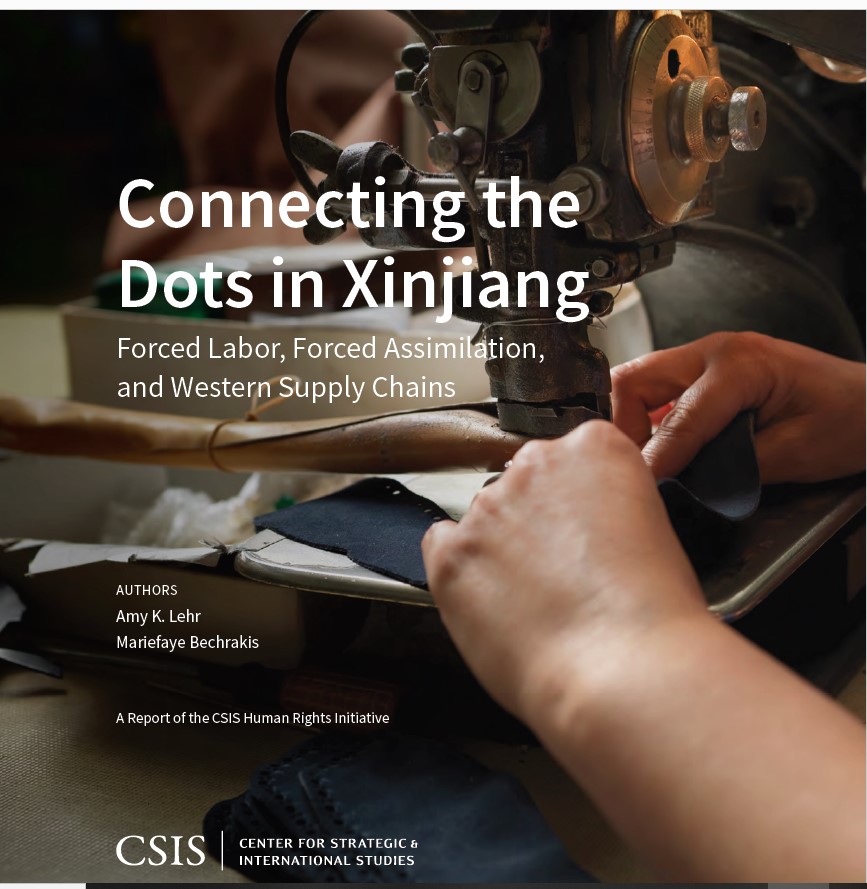
Chinese social scientists have a six-step questionnaire to identify authoritarian personalities. Respondents are asked if they agree with these propositions:
- Government leaders are like the head of a family; we should all follow their decisions.
- Even if a parents’ demand is unreasonable, children should do it.
- It is taken for granted that subordinates should submit to a higher-ranking person.
- Even if government policy is wrong, people should obey.
- If we have political leaders who are morally upright, we can let them decide everything.
- The portrait of our national leader cannot be used arbitrarily in a cartoon.[3]
This list, of authoritarian traits with Chinese characteristics, reveals the Confucian roots underlying the CCP’s embrace of authoritarianism. To be classified as an authoritarian, you don’t need to agree with all six. It’s a list that is more coherent than the above list of behaviours that classifies Uighurs as terrorists, in urgent need of coercive rectification.
So entrenched is authoritarianism, at all levels of the party-state, this is no longer a question just of the tightening authoritarianism at the top, concentrating all power in the hands of one man. There are plenty of people who agree with all the authoritarian propositions listed above, including that even if government policy is wrong, people should obey.
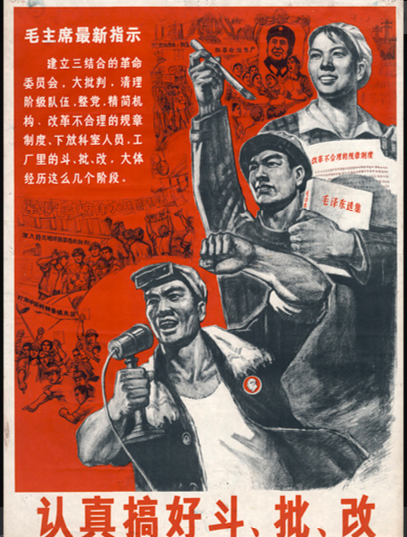
STATE SOCIALISM AS MOUTHING TAX
Obedience has to be publicly signalled, in a performance witnessed by those below you in the hierarchy. Tibetans long ago complained that in premodern Tibet they were burdened by taxes; after “liberation” the burden was compulsory attendance at endless meetings, where cadres would drone on, repetitively, and at length. Performative submission to those above is admonition to those below to do likewise.
“For Chinese citizens, regardless of how much or how little they understand the slogan-saturated language used in speeches by Chinese Communist Party (CCP) leaders, this language is an unavoidable part of everyday life. They encounter it from the time they enter kindergarten and thereafter throughout their formative years, daily in the media, and in the workplace. The Party’s slogans, songs, and spectacular national day parades, and the images and stories it projects of China’s past and present, are interwoven into people’s memories of school life and public holidays.”[4]
In a multi-level hierarchy, ritual performance of subservience and command must be repeated, as orders descend from on high. It’s time consuming, a tax. It is also a worry for a country that since the 1980s embraced entrepreneurial initiative as a driver of wealth accumulation. The entrepreneur is an innovator, not a subservient cipher. The demand, since the 1980s, for business schools, to teach modern management skills, was enormous. The demand for modern managerial skills sent the sons and daughters of central leaders to the most highly ranked business schools in the West.
Yet, in the latest tightening of centralised authoritarianism all businesses, whether state owned or not, are required to conform to the Party’s command, not just with a Party cell embedded in management, but with full compliance with official policies.
Systemic authoritarianism also bothers social scientists in China, such as Lu Li-bang and Huang Heng-xue, of the School of Government Administration at prestigious Peking University. They write: “The authoritarian personality of civil servants refers to a kind of personality that civil servants own in the administrative management activities and is closely connected with their identity,power and behaviour. In China, the master and servant roles are the distinguishing features of the civil servants’ authoritarian personality,which results from the joint effects of the repressed ego,the sociality of authoritarian personality,the traditional culture, the modern historical factors, etc. At present,it is mainly reflected as bureaucracy,privatization of public power,obvious bureaucracy,weak sense of service innovation consciousness,corruption breeding etc. The negative influence that authoritarian personality of civil servants can be shown in administrative management system and its running becomes more and more obvious. The personality transformation of civil servants must be taken, and the modern administrative personality must be gradually shaped”.[5]
This analysis takes care to avert its gaze from the apex of the pyramid, and concentrate on the drones. Having diagnosed the ailment, the solution is presented as yet another top-down authoritarian intervention: the wholesale “personality transformation of civil servants.”
Tibetans and Uighurs stand out in such a system as deviant and noncompliant, persistently and stubbornly so. In a patriarchal and authoritarian system the party, by definition, knows what is best for everyone, so noncompliance is intolerable, since it perpetuates backwardness, poverty, ingratitude and, above all, difference, in a system working towards a single Zhonghua Minzu race, in which all ethnic differences are assimilated into a single national identity. This is “personality transformation” at mass scale.
The Tibetans have been punished for preferring their own culture for longer; but the Uighurs since 2017 have been punished more widely and intensively. From a Han authoritarian perspective, China has patiently sought for many decades to persuade these recalcitrant minorities of the obvious superiority of Han Chinese civilisation, and they have spurned it. In an authoritarian system, the time has come to force compliance with what is desirable and inevitable.
**************************************
Note: this blog prefers Uighur to the more common Uyghur, because that is closer to how it is pronounced. Uyghur tends to be spoken as wee-gah. Uighur allows for the first two vowels to be somewhat distinct: oo-ee-gur. The wee-gah pronunciation is yet another Han appropriation.
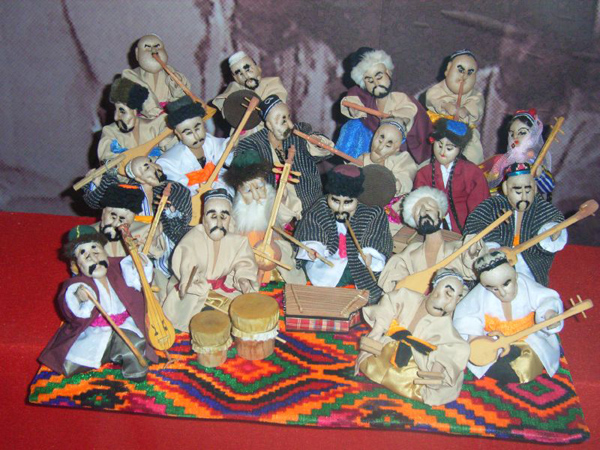
[1] http://tv.cctv.com/2019/12/06/VIDE62WPTvH37AvOKQe5c2vs191206.shtml?spm=C31267.PFsKSaKh6QQC.S71105.7
http://tv.cctv.com/2019/12/06/VIDEo6S947Ax2oqdvsar3zKK191206.shtml?spm=C31267.PFsKSaKh6QQC.S71105.10
[2] Bill Markle, Performative Declaration, http://chinareflections.com/index.php/81-sections-from-book-comments-encouraged/341-performative-declamation
[3] Deyong Ma & Orion A. Lewis (2020) Personality, media choice and political ideology: explaining ideological pluralism in China, Democratization, 27:4, 527-546, DOI: 10.1080/13510347.2019.1696775
[4] Gloria Davies, A Dream of Perpetual Rule, China Dream, ANU Press, 2020http://press-files.anu.edu.au/downloads/press/n6614/pdf/01_chapter.pdf
[5] 吕立邦,黄恒学, 公务员权威主义人格探析, A Study of Civil Servants’ Authoritarian Personality 山西师大学报( 社会科学版)Journal of Shanxi Normal University( Social Science Edition) Nov 2016 Vol. 43 No. 6
